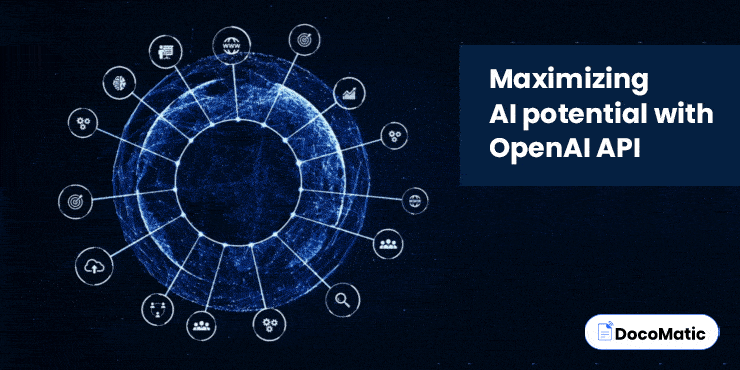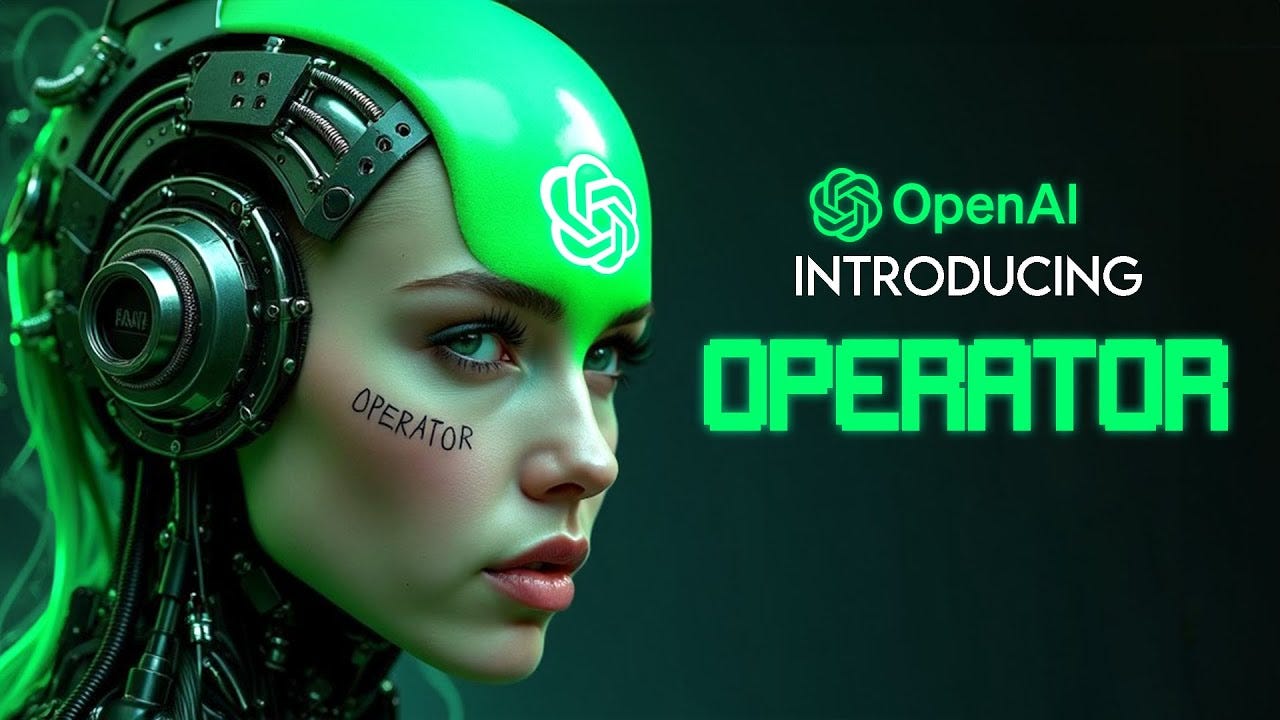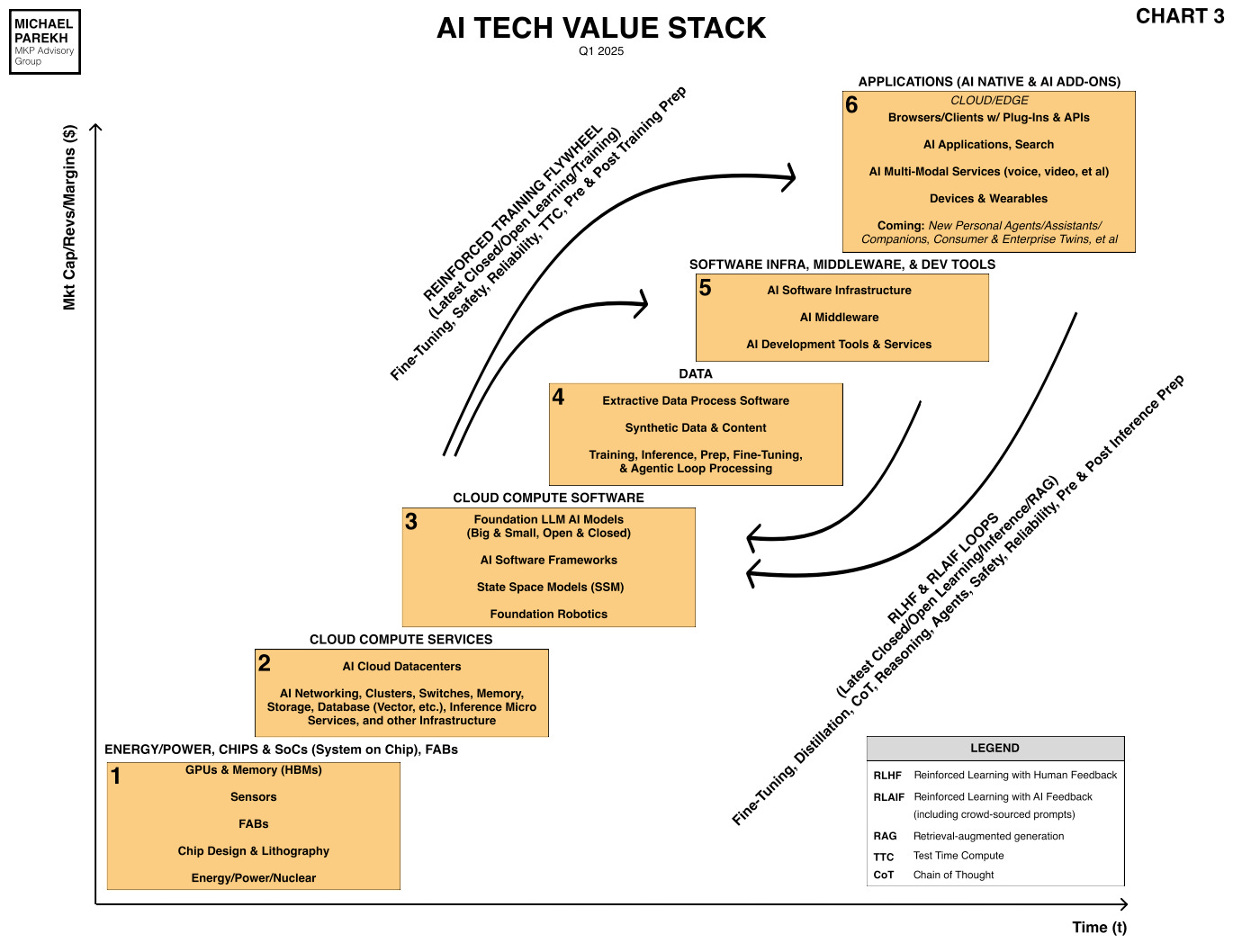AI: OpenAI introduces 'Deep Research' AI Agents. RTZ #620
...fast on the heels of 'Operator' and DeepSeek R1 a few days ago
OpenAI’s APIs (application program interface), used by millions to access their growing stable of AI products and services, are going to be far busier.
I wrote a few days ago about AI agents taking baby steps for ‘AI Controlling our Screens’. The major LLM AI companies from OpenAI to Anthropic, Google and many others, are racing on this capability.
Most of these services are early. More tech demos from science projects, than truly useful AI applications in mainstream every day uses.
But they’re notable for their promise vs the current pain of experimenting with them. On the road to AGI. From AI Reasoning to Agents and beyond.
OpenAI’s Sam Altman announced on Sunday, a new product, ‘deep research’, their next agent, and said:
“this is like a superpower; experts on demand!”
“it can go use the internet, do complex research and reasoning, and give you back a report”.
“it is really good, and can do tasks that would take hours/days and costs hundreds of dollars.”
A promising step on Level 2 to Level 3 below:
The New York Times discusses it as “OpenAI unveils AI tool that cna do Research Online”:
“The tool, called Deep Research, arrives days after OpenAI released another one, which shops for groceries and books restaurant reservations.”
“A week ago, OpenAI released a tool that can go online to shop for groceries or book a restaurant reservation. Now it is offering A.I. technology that can gather information from across the internet and synthesize it in concise reports.”
“OpenAI unveiled the new tool, called Deep Research, with a demonstration on YouTube on Sunday, days after showing the technology to lawmakers, policymakers and other officials in Washington.”
It’s available at its premier tier:
”OpenAI said that, beginning on Sunday, Deep Research would be available to anyone who was subscribed to ChatGPT Pro, a $200-a-month service that provides access to all of the company’s latest tools. It plans to also offer the tool via its other paid services.”
Deep Research, and Operator released a few days ago, are early examples of where AI Agents are racing towards in capabilities. And their current abilities are important to understand and assess. The 20 minute YouTube video is available here.
The new product has ‘Deep’ in common with DeepSeek of course, which has its own AI Reasoning product R1 making headlines as well of late.
In a separate piece, the NY Times’ Kevin Roose tries to get an answer on the earier service in “How Helpful Is Operator, OpenAI’s New A.I. Agent?”:
“Operator, a new computer-using tool from OpenAI, is brittle and occasionally erratic, but it points to a future of powerful A.I. agents.”
“In the past week, OpenAI’s Operator has done the following things for me:”
“Ordered me a new ice cream scoop on Amazon.”
“Bought me a new domain name and configured its settings.”
“Booked a Valentine’s Day date for me and my wife.”
“Scheduled a haircut.”
“It did these tasks mostly autonomously, although I did have to nudge it along from time to time and occasionally rescue it from a loop of failed attempts.”
I found #3 particularly notable, because it’s a thing most regular folks would not do.
The others, have intrisic joys and rewards for many to do themselves.
But a good start. He continues:
“If you’re just catching up — or if you’ve been distracted by the DeepSeek news this week, which has overshadowed all other A.I. news — Operator is a new so-called A.I. agent released last week by OpenAI.”
“The tool, which was billed as a “research preview,” is available only to people who pay $200 a month for the company’s highest subscription tier, ChatGPT Pro. It gives users the ability to direct an A.I. agent that can use a web browser, fill out forms and take other actions on their behalf.”
That high cost right now is due to the variable costs of running the inference AI reasoning compute in these early days of the AI Tech Wave.
Those prices will come down fast, but they’re still a speed bump for mainstream users, like online fees by the minute were for early adopters of online services in the late 1980s and 1990s, until the world went to ‘flat pricing’ popularized by AOL and others.
The NYTimes continues:
“A.I. agents are all the rage in Silicon Valley right now. Some industry insiders think they’re the next big step in A.I. capabilities, because an A.I. agent that can use a computer can actually accomplish valuable real-world tasks, rather than just provide assistance. Many of the leading A.I. companies, including Google and Anthropic, are testing autonomous agents that they claim companies will eventually be able to “hire” as full-fledged workers.”
“I upgraded my ChatGPT subscription to put Operator through its paces and see what an A.I. agent could do for me.”
“On the surface, Operator looks a bit like regular ChatGPT, except that when you give it a job — “Buy me a 30-pound bag of dog food on Amazon,” for example — Operator opens a miniature browser window, types “Amazon.com” into the address bar and starts clicking around, trying to follow your instructions.”
“It might ask a few clarifying questions. (Do you want chicken-flavored or beef-flavored food? Overnight shipping or two-day?) Then, once it’s feeling confident it has made the right choice, Operator prompts you for a final confirmation, puts the dog food in your cart and places the order. (Operator won’t enter passwords or credit card numbers — you have to take over the mini-browser and type those things in yourself — but it does the rest on its own.)”
It’s the novelty factor for now, like watching a dog fetch the slippers for the first time:
“The whole point of Operator is that you don’t have to supervise it — it can carry out tasks in the background while you’re doing other things. But I found myself glued to the window, mesmerized by the sight of a self-driving web browser clicking on buttons, typing words into boxes and selecting from drop-down menus, all on its own. Look, Ma, a computer using a computer!”
The whole piece is worth reading for the myriad examples of things it could do and not that well yet. Including the animated illustrations of OpenAI Operator doing its best doing its thing.
The article does take a step back on the broader implications on the current internet ecosystem:
“Setting a bunch of A.I. agents loose on the internet could also provoke a backlash from web publishers, e-commerce sites and other businesses that rely on human-generated traffic to pay their bills. (If you’re a business buying ads on Amazon, you want those ads to be seen by humans, not bots pretending to be humans.) In the future, I can imagine more websites taking steps to block A.I. agents or steer them toward certain pages or products.”
And concludes:
”Right now, A.I. agents are too incompetent to be much of a threat. But it doesn’t take much imagination to envision a near future when most of the web will consist of robots talking to robots, buying things from robots and writing emails that only other robots will read.”
“The self-driving internet is almost here, in other words — get your clicks in while you can.”
Depending on which company and founders one listens to, these more promising agents are likely here sooner than later. I’d wager a bit later than we like, since new tech generally takes longer to hit mainstream than thought initially.
But one needs to start thinking of their arrival sooner than later in this AI Tech Wave, most in Box 6 above. Stay tuned.
(NOTE: The discussions here are for information purposes only, and not meant as investment advice at any time. Thanks for joining us here)










